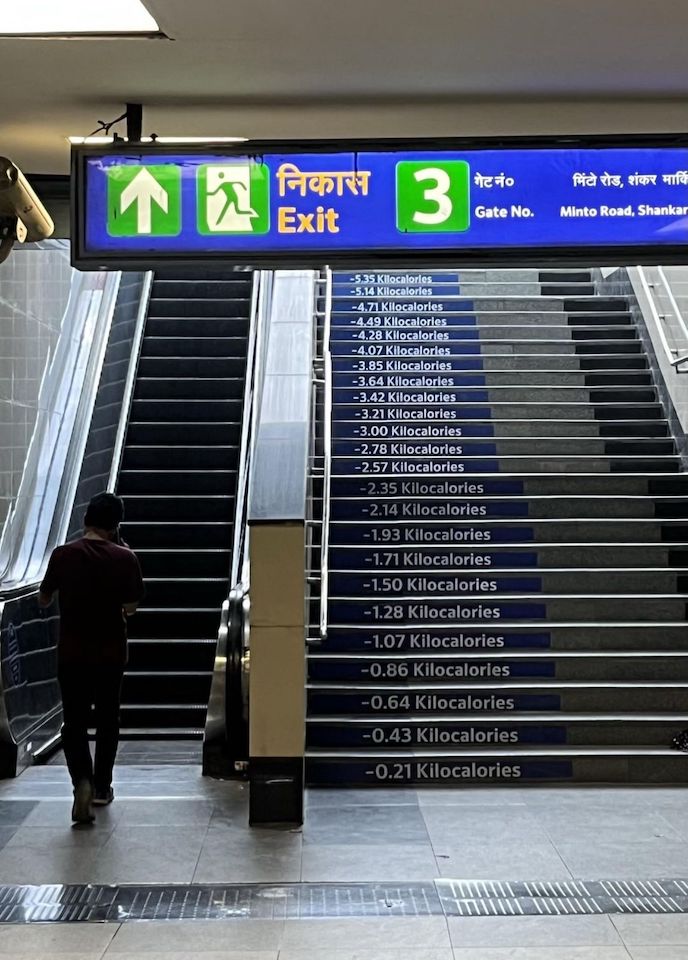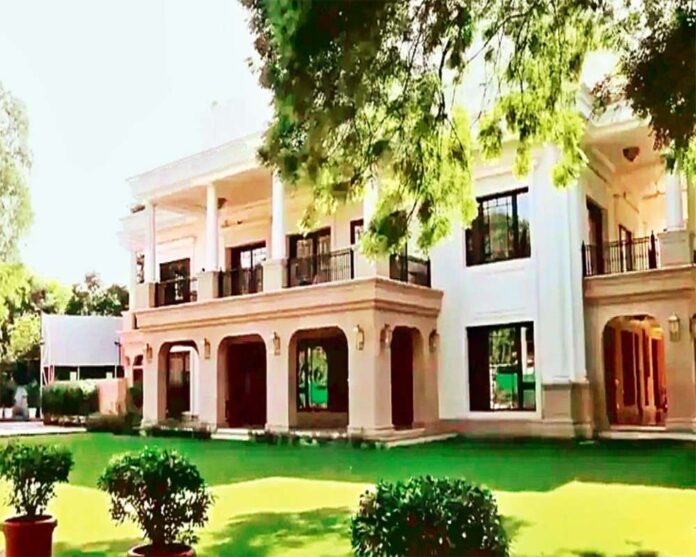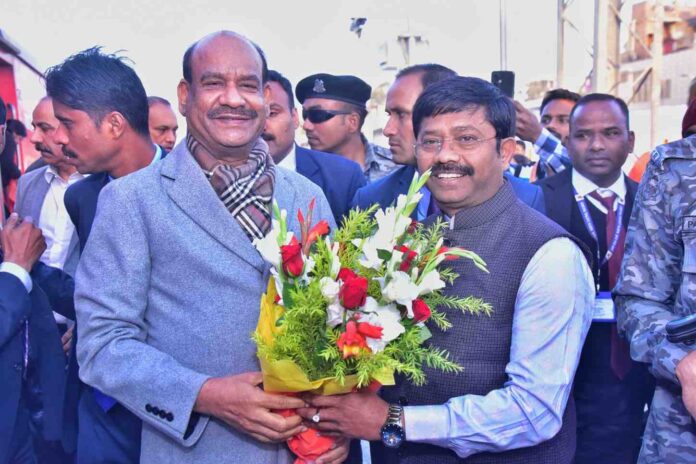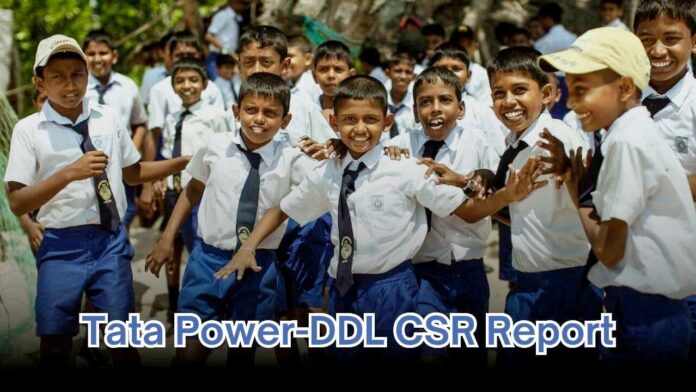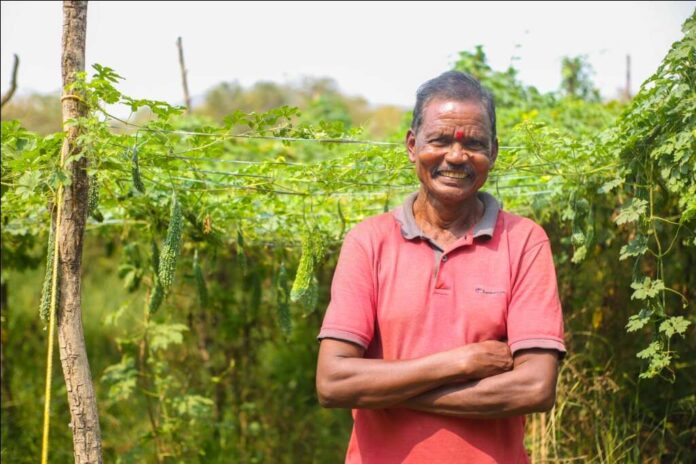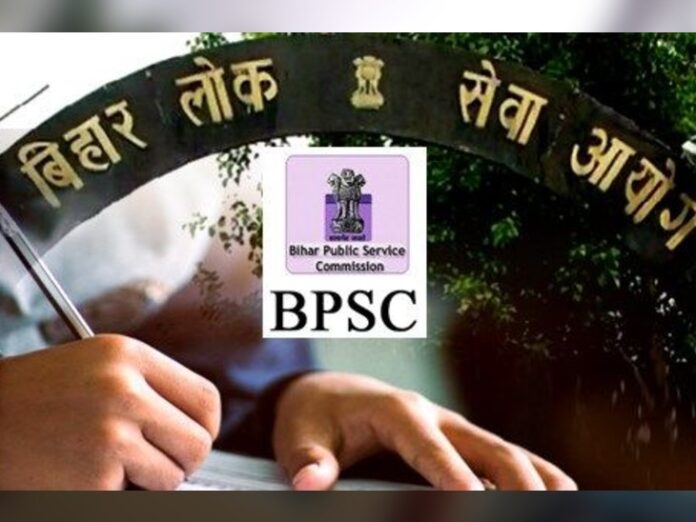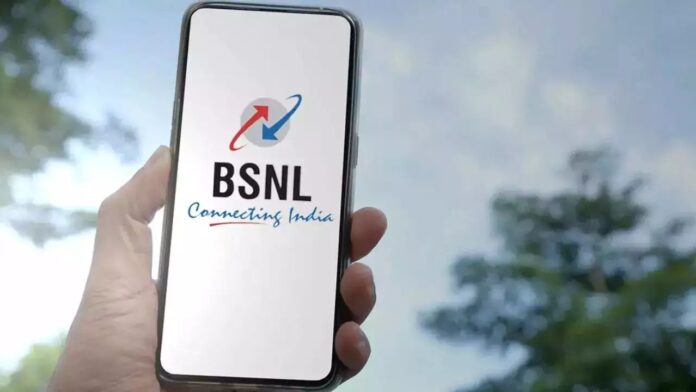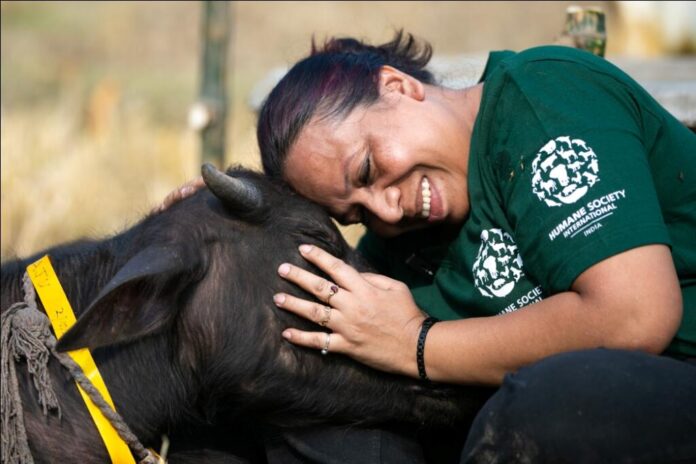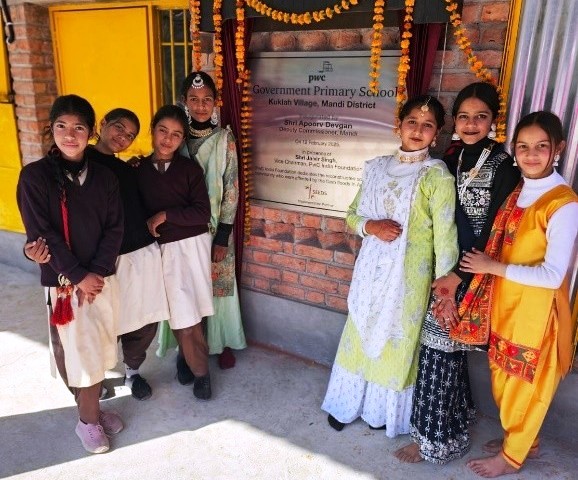CVC Orders Probe into Alleged Irregularities in Kejriwal’s Renovated Residence
The Central Vigilance Commission (CVC) launched an extensive investigation regarding the renovation work performed on ex-Delhi CM Arvind Kejriwal’s former official residence. A complete probe began after claims emerged about irregularities in turning the 6 Flagstaff Road bungalow into an 8-acre (40,000 square yard) mansion by violating building standards. BJP leader Vijender Gupta addressed this concern by filing a complaint in October 2024 about illegitimate property mergers on residential expansions.
Vijender Gupta’s complaint demonstrated that government officials and judges once used plots 45 and 47 on Rajpur Road until demolition occurred to enable construction work. The residence allegedly expanded illegally by merging two bungalows on Flag Staff Road following non-approval of layout plans and violating ground coverage and floor area ratio (FAR) regulations. The CVC decided to investigate after these claims.
CVC to Conduct Thorough Investigation
On February 13, 2025, the CVC instructed the Central Public Works Department (CPWD) to conduct an in-depth probe into the claims. The CPWD had earlier submitted a factual report on the renovation, which detailed the alleged violations and extravagant spending on luxury renovations. The report included the installation of high-end appliances and lavish interior designs, which the BJP has cited as evidence of misuse of taxpayer funds.
During its investigation, the CVC looks both financial malpractices and other irregularities related to the property renovation. Gupta states that taxpayers’ money was used to make the luxurious residence “Sheesh Mahal.” The BJP used the mansion as their main counterattack strategy against Kejriwal during their political campaign also Prime Minister Narendra Modi and other BJP officials specifically addressed it during rallies.
Political Heat Rises Between BJP & AAP
Gupta has appealed to Delhi’s Lieutenant Governor VK Saxena asking him to reverse the process of combining government buildings with Kejriwal’s official residence. The investigation occurred immediately after the BJP won Delhi’s election and accused AAP of corruption and public resource misuse. The ongoing investigation into the real estate case exists under increasing political pressure as Kejriwal and his party maintain their silence.
लोकसभा अध्यक्ष ओम बिरला और पीयूष गोयल ने महाकुंभ में लगाई आस्था की डुबकी
लोकसभा अध्यक्ष ओम बिरला शनिवार को महाकुंभ में पहुंचे और त्रिवेणी संगम में पवित्र स्नान कर आस्था की डुबकी लगाई। इस अवसर पर उन्होंने मां गंगा, मां यमुना और मां सरस्वती का आशीर्वाद लिया और देशवासियों के सुख-समृद्धि की कामना की। मीडिया से बातचीत में लोकसभा अध्यक्ष ने कहा कि महाकुंभ भारत की आध्यात्मिक आस्था का प्रतीक है। यह हमारी प्राचीन संस्कृति और धर्म का महोत्सव है। यहां संतों की वाणी, उनका प्रभाव और भक्तों की अपार श्रद्धा देखने को मिलती है। उन्होंने कहा कि मां गंगा की कृपा सभी पर बनी रहे और हर व्यक्ति के जीवन में खुशहाली आए। (Om Birla in Mahakumbh)
ओम बिरला ने महाकुम्भ को बताया भारत की सांस्कृतिक धरोहर का अद्भुत उदाहरण
Om Birla ने महाकुम्भ के महत्व पर प्रकाश डालते हुए कहा कि वेद-पुराणों में इसका विशेष उल्लेख है। यह आयोजन समभाव और समरसता का प्रतीक है, जहां जाति और धर्म से ऊपर उठकर सभी लोग एक साथ आस्था के संगम में डुबकी लगाते हैं। महाकुम्भ न केवल आंतरिक ऊर्जा और चेतना को जाग्रत करता है, बल्कि आत्मा और मन की शुद्धता भी प्रदान करता है। लोकसभा अध्यक्ष ने आस्था को जीवन का सबसे बड़ा सामर्थ्य बताते हुए कहा कि यह पर्व राजनीति से परे, सामाजिक और आध्यात्मिक समरसता का अवसर है। उन्होंने कहा कि पूरे भारत से, गांव-गांव और शहर-शहर से लाखों श्रद्धालु यहां पहुंचे हैं, जो इस आयोजन की विशालता और पवित्रता को दर्शाता है।

केंद्रीय मंत्री पीयूष गोयल ने भी संगम में लगाई पावन डुबकी
केंद्रीय वाणिज्य एवं उद्योग मंत्री Piyush Goyal शनिवार को त्रिवेणी संगम में स्नान करने पहुंचे। उन्होंने महाकुम्भ को एक भारत श्रेष्ठ भारत का अनमोल उदाहरण बताते हुए कहा कि विश्व भर के लोगों की आस्था देख कर आनंद की अनुभूति हो रही है। हमारा सनातन धर्म सुरक्षित है और यह देश को नई ऊंचाइयों पर लेकर जाएगा। केंद्रीय मंत्री ने प्रयागराज में परमार्थ निकेतन आश्रम (ऋषिकेश) के प्रमुख, स्वामी चिदानंद सरस्वती जी के दर्शन कर उनका आशीर्वाद ग्रहण किया।
The Complete CSR Report of Tata Power Delhi Distribution Ltd (Tata Power-DDL) for FY 24
Tata Power Delhi Distribution Ltd or Tata Power-DDL is a joint venture between Tata Power Company and the Government of NCT of Delhi with the majority stake being held by Tata Power. It distributes electricity in North & North West parts of Delhi catering to a population of over 50 lakh. The company started operations on July 1, 2002 post the unbundling of erstwhile Delhi Vidyut Board. With a registered consumer base of around 12 lakh and a peak load of around 1350 MW, the company’s operations span across an area of 510 sq kms.
Tata Power-DDL has to its credit several firsts in Delhi: SCADA controlled Grid Stations, Automatic Meter Reading, GSM based Street Lighting system and SMS based Fault Management System. As a step towards captive generation, Tata Power-DDL has also established a 108 MW gas based combined cycle power generating facility at Rithala, North Delhi in its distribution area.
CSR Spent in FY 24
The Company is committed to promote social wellbeing and bring more compliments to the business. In the FY 2023-24 Tata Power-DDL spent Rs 12.56 crore as CSR expenditure as against a total CSR obligation of Rs 12.25 crore.
Major Focus Areas for CSR
Tata Power-DDL is committed to ensuring the social wellbeing of the residents of JJ Clusters/ resettlement colonies/ villages in the vicinity of its operational areas through Corporate Social Responsibility (CSR) initiatives in alignment with Tata Power-DDL 2.0 strategy. These clusters also have a very high representation of SC/ST communities which further emphasises the need for inducing various developmental initiatives therein.
The Company’s CSR programmes have been restructured and rebranded under the mother brand SAATHI with the Guiding Principles being UNNATI (Women & Youth Empowerment), UJJWAL (Support to SC/ST Communities), SANJEEVANI (Health) and CLUB ENERJI (Environment) which are meant to serve marginalised societal sections and communities falling in its licensed area of supply and its geographical locations of business development projects.
As per the company’s annual report, a total of 10.33 lakh beneficiaries have been helped and supported through Corporate Social Responsibility (CSR) initiatives of Tata Power-DDL such as Ujjwal (over 0.14 lakh), Sanjeevani ( over 5.92 lakh), Unnati (over 3.49 lakh), Club Enerji (over 0.70 lakh), and Disaster Management & Unforeseen Contingencies (Covid-19 Response/Activities – over 0.08 lakh).
Several initiatives have been taken in FY 2023-24 such as CSR Effectiveness Index, distribution of Aids & Appliances to the differently abled, NGO Scorecard Assessment, Board of Directors Visit, I Love Science Project, Inauguration of Community Library, set up of Jacquard Machine at Handloom Unit, Relief Work during Delhi Floods and CSR support for the rural belt under the licensed area of the Company. Some of the existing CSR initiatives are Women Literacy Centres, ABHAs, Self- Help Groups (SHGs), Vocational Training Centres, Mobile Dispensaries, Potable RO Water Plants, Energy Conservation Sensitisation Sessions and Tree Plantation.
ABHAs are female brand ambassadors promoting TATA Power-DDL’s CSR programmes and assisting their communities, with 841 women currently serving in these roles.
TATA Power-DDL CSR Programmes for Education
Women Literacy Centres
TATA Power-DDL set up Women Literacy Centres in North and Northwest Delhi, where local educated women teach functional literacy from their homes. Computer Based Functional Literacy is one of the primary features of this initiative.

Entrepreneurship Development Programme
The Entrepreneurship Development Programme (EDP) empowers women through Self-Help Groups (SHGs), linking them to financial institutions and exploring livelihood opportunities based on their skills and interests.
Vocational Training Centres
TATA Power-DDL operates 21 Vocational Training Centres (VTCs) including Tutorial Programme to provide employable skills to unemployed youth and school dropouts respectively and a special centre for Persons with Disability namely Shad Training Centre.
Soft Skill Development Training Programme
The Soft Skill Development Training Programme for adolescent girls from underserved communities is conducted in 18 Government TAAP-associated schools in Delhi.
Meri Pathshala
TATA Power-DDL started the “Meri Pathshala” programme with the objective to bring every underprivileged out-of school child into formal schooling. Under the programme, the company has supported 20 STCs in 17 government schools by converting them into Gyan Loks.
Career Counselling programme
Under the Career Counselling programme, scholarship recipients received one-on-one counseling, and open workshops were conducted for all Class X and XII students to help them identify prospective career and educational paths based on their interests and preferences.
Lakshya Classes
With the aim to give young minds a competitive edge, make them equipped for future challenges and to help them in achieving good ranks in competitive exams to qualify for IIT-JEE & NEET, Tata Power- DDL in collaboration with Ex-Navodayan Foundation has started Lakshya Classes (Special coaching Centre) for the needy and meritorious students of Class-XI of government schools associated with its TATA Affirmative Action Programme (TAAP).
Total 200 students of Class-XI enrolled in the FY 2022-23 are getting benefitted through this programme, as per the company’s annual report.
School Scholarship Programme
TATA Power-DDL has implemented several initiatives in this area for the benefit of students in Government Schools one such initiative is Scholarship Programme. Under the Scholarship Programme the targeted number of students (SC/ST, Women and PWD categories) of Class-XI was provided educational kits, which consists of school bags, reference books, stationery etc. In the FY 2023-24, total of 430 students from 40 government schools were felicitated with scholarships.
National Urja Mela
Under the aegis of Club Enerji, Social Impact Group, organised National Urja Mela, on December 14, 2023, at TATA Power-DDL Learning Center, CENPEID, Sector-11 Rohini. Urja Mela is a concluding event of year-long events conducted throughout the year.
Before the Urja Mela, Mini Urja Melas were held across 12 districts to sensitise the students on topics such as Energy Conservation, Cimate Change, Air Pollution, Renewable Energy, Safety, Ethics, Health and Hygiene which witnessed an overwhelming participation of more than 100 schools.
After conducting Mini Urja Melas, the company hosted National Urja Mela at pan India level and invited other TATA Power subsidiaries (Club Enerji Programme beneficiaries) to participate in the competitions. Teams from Gujarat, Rajasthan, Andhra Pradesh, Karnataka, Mumbai, Odisha, Bhopal, and Jharkhand participated in the same. The Event witnessed participation of more than 800 children and teachers from over 100 member schools.
I Love Science
I Love Science is a unique education model conceptualised to help children develop an interest in science through fun, practical experiments. These experiments are conducted with kits designed using low-cost, upcycled material instead of expensive and delicate laboratory equipment. The workshops are designed to ensure that children understand the scientific concept by relating the topics at hand with everyday life.
TATA Power-DDL CSR Programmes for Healthcare
Mobile Dispensary
TATA Power-DDL operates six Mobile Dispensaries providing free basic healthcare, including consultation, medication, and health education, at locations lacking permanent facilities. Each unit has a doctor, pharmacist, attendant, and driver.
The Mobile Dispensary teams of both the NGOs conduct health camps dedicatedly for pregnant women, lactating mothers, adolescent girls and children in the age groups of 0-5 years and camps are held for cancer and cataract patients as well.
SIG-Sanjeevani Programme
Under its SIG-Sanjeevani Programme, TATA Power-DDL organises multiple blood donation camps annually with Lions Blood Centre and the Indian Red Cross Society to benefit Thalassemia-affected children and the communities.
CSR for Community Benefit
In order to address the challenges faced by JJ Cluster which were its neighbourhood community as well as lowend customers TATA Power-DDL has installed 101 Industrial Ultra Filtration Plants in the JJ clusters (slums), resettlement colonies, Government Educational Institutions and Delhi Metro stations for the benefit of the inhabitants, students and metro commuters.
CSR for Tree Plantation
Under TATA Power-DDL’s “Harit Ek Pehal” mega plantation drive, around 12,500 saplings were planted in FY 23-24 at various schools, RWAs, parks, employee residential areas, and office locations, with saplings sourced from private nurseries and the Forest Department of Delhi.

Empowering Agri-preneurs: Shaping Indian Farming to Thrive Beyond Survival
For a long time, the narrative surrounding the Indian farmer has centred on empowering a marginalized group—portraying the farmer as a sacrificial hero, fighting for survival. While government efforts and infrastructure have primarily focused on boosting yields and productivity to enable large-scale production, innovation and fostering a ‘growth mind set’ has been largely overlooked. Enabling assured markets (for eg. sugarcane, coffee, tea etc.) has led to lack of innovation on part of the farmer and a push for scaling up—often through unsustainable methods—has resulted in land degradation. Mono-cropping has led to nutrient depletion. This is hindering long-term growth potential.
To truly empower the 89.4%farmers in India who own less than two hectares of land (NSS survey, 2021), the solution must be transformative – one that goes beyond simply increasing yields or expanding markets. The need of the hour is to create an entrepreneurial and growth mind-set – rarely spoken of in the agricultural context. How can we achieve this?
a. Building aspiration and creating awareness:
Generational poverty often deprives marginalized communities of the ability to envision a better future. Lack of exposure to entrepreneurial thinking and structured market insights has kept many farmers locked in outdated farming models. Social organizations and government initiatives should focus on fostering aspirations, encouraging farmers to adopt an entrepreneurial mindset.
For example, selling dehydrated produce like strawberries can generate up to 25% more income than fresh strawberries, while preserving their nutritional value. Similarly, split tur dal (pigeon pea) can earn nearly 30% more than the whole dal. In Nashik, farmers who transitioned from selling raw grapes to raisin processing increased their income by 30%. Additionally, ground safed musli, a medicinal herb, commands double the price of its fresh counterpart due to its immediate usability.
Nurturing an entrepreneurial mindset requires large-scale capacity building through formal training and mentorship programs. The Agri-Entrepreneurship Program (AEP) by Syngenta Foundation has demonstrated the impact of such interventions, increasing rural youth earnings from ₹45K to ₹2.67 Lakh per season. Similarly, ICAR’s ARYA initiative trained smallholder farmers in mushroom farming, doubling their annual income.
b. Diversifying livelihoods:
Indian farmers must look beyond traditional farming while still utilizing existing infrastructure to explore agri-allied practices. Opportunities like apiculture (beekeeping), dairy farming, livestock rearing, agri-tourism, and multi-cropping offer excellent potential to diversify and increase income. A notable example of such diversification is the revival of the safed musli crop in Nashik, particularly in the Swades region, where paddy farmers have shifted from mono-cropping.
Safed Musli, a rare medicinal herb valued at Rs 1,200 per kilogram, has brought substantially augmented incomes of households dependent solely on paddy. Its success has inspired many farmers to expand their cultivation areas, demonstrating the potential of crop diversification for economic growth. Similarly, the success of bee-keeping among Punjab’s farmers and the growing focus on agri-tourism in recent years, particularly in Andhra Pradesh, highlight the vast potential of these agri-allied activities.
c. Strengthening of Farmer-Producer Corporations:
Farmer Producer Companies (FPCs) are collaborative organizations that unite 500-1000 farmers, enabling them to achieve goals and tackle challenges that would be difficult for individual farmers to handle alone. FPCs enhance bargaining power, improve market access, promote fair trade practices, and provide valuable insights into market potential, helping farmers maximize their returns and grow sustainably.
The success of FPCs like Sahyadri Farms, which has created a vast market for tomatoes, grapes, and raisins—managed entirely by farmers—demonstrates the immense bargaining power and production capacity that can be achieved when individual farmers unite. Sahyadri Farms has built a Rs 450 crore agribusiness focused on tomatoes, grapes, and raisins. Through shared storage and direct export channels, they have reduced post-harvest losses by 30%, ensuring higher income stability for its members.
d. Financial literacy and access to capital:
Impact of technology on Indian agriculture remains limited due to low adoption and lack of financial access. Digital marketplaces like eNAM and Kisan Suvidha are making strides in real-time price discovery and direct farmer-buyer connections, but much more is needed.
Financial inclusion remains another critical barrier. Over 60% of smallholders still rely on informal credit sources, often at exploitative interest rates. Programs like Pradan’s financial literacy training have helped smallholders reduce reliance on moneylenders by 40%, but broader adoption of fintech solutions and micro-finance initiatives is needed. Organisations like Mann Deshi are setting inspiring precedents by bringing financial literacy to marginalised communities with little or no access to such knowledge. MUDRA, PM Kissan Credit, Rashtriya Krishi Vikas Yojana etc. are existing schemes that can catapult farm incomes – social organisations must equip farmers with the knowledge to access these schemes and reap the benefits of govt. plans.
Empowerment should move beyond the traditional framework and focus on cultivating a growth mindset that allows farmers to take ownership of their agricultural ventures, make informed decisions, and tap into new opportunities for income diversification and sustainability. Only then can they truly transition from being recipients of aid to becoming prosperous, self-reliant agri-preneurs.
Views of the author are personal and do not necessarily represent the website’s views.
 Mangesh Wange has been at the helm of the Swades Foundation as CEO since May 2016, applying his extensive experience in General Management and P&L oversight to drive the organization’s mission. Mangesh played a pivotal role at Godrej in establishing the modern retail ventures of Nature’s Basket and Aadhaar. In 2007, Mangesh transitioned to the microfinance sector with Fullerton India, where he spent three years doing HR and business roles. He continued his journey with Thomson Reuters, where he was responsible for startup of Reuters Market Light by focusing on mobile information services for rural India. Mangesh holds a degree in Agricultural Engineering from PAU, Ludhiana, and a Postgraduate degree from IIM, Ahmedabad. He is also a Professional Certified Coach (PCC) accredited by the International Coaching Federation.
Mangesh Wange has been at the helm of the Swades Foundation as CEO since May 2016, applying his extensive experience in General Management and P&L oversight to drive the organization’s mission. Mangesh played a pivotal role at Godrej in establishing the modern retail ventures of Nature’s Basket and Aadhaar. In 2007, Mangesh transitioned to the microfinance sector with Fullerton India, where he spent three years doing HR and business roles. He continued his journey with Thomson Reuters, where he was responsible for startup of Reuters Market Light by focusing on mobile information services for rural India. Mangesh holds a degree in Agricultural Engineering from PAU, Ludhiana, and a Postgraduate degree from IIM, Ahmedabad. He is also a Professional Certified Coach (PCC) accredited by the International Coaching Federation.
Manjay Lal Sada, BPSC क्लियर कर बने गांव के पहले सरकारी बाबू
Manjay Lal Sada, गरीबी और शिक्षा की दृष्टि से पिछड़े गांव परमार मुसहरी की चुनौतियों को हराकर BPSC क्लियर कर सरकारी नौकरी पाने वाले पहले शख्स बन गए हैं। उनकी इस उपलब्धि से उनके पूरे गांव में जश्न का माहौल है। इस गांव के पहले इन्टर पास, यानी 12 वी पास भी Manjay Lal Sada ही हैं।
Darbhanga के परमार मुसहरी गांव के Manjay Lal Sada
Bihar Darbhanga जिले के परमार मुसहरी गांव के रहने वाले Manjay Lal का बचपन बड़ी दुश्वारियों में बीता। आज़ादी के सात दशकों बाद भी इस गांव में मूलभूत सुविधाओं का अभाव है। 600 लोगों की आबादी वाले गांव मुसहरी में संसाधनों की कमी और गरीबी के चलते बच्चों को 5-7वी तक की पढ़ाई के बाद मजदूरी में लगा दिया जाता है। गांव में शिक्षा का न कोई बुनियाद ढांचा है, और न ही माहौल! गांव के हर पिता की आँखों में ये सपना तो है, कि बेटा पढ़ाई कर नाम रोशन करे, लेकिन उस सपने के पूरे होने की कोई उम्मीद नहीं! अब Manjay Lal Sada की सफलता ने हर पिता के सपने को पूरा हो पाने की उम्मीद दिखाई है।
Manjay Lal, संकल्प,मेहनत और सफलता की नई मिसाल
दरभंगा के गांव परमार मुसहरी की स्थिति इतनी दयनीय है,कि इस गांव में अब तक कोई मेट्रिक पास भी नहीं हो पाया है। Manjay का परिवार दलित श्रेणी में आता है। माता-पिता मजदूरी कर परिवार का भरण-पोषण करते हैं। 5 भाई-बहनों के साथ मिट्टी और बांस से बने कच्चे घर में रहने वाले Manjay Lal Sada ने अपनी पढ़ाई का खर्च निकालने के लिए बच्चों को tuition पढ़ाया। BPSC TRE 3 परीक्षा पास कर शिक्षक बनाने का सपना साकार कर दिखाया और अब वे गांव के पहले सरकारी कर्मचारी बनने जा रहे हैं। Manjy की सफलता से प्रेरित गांव वाले अब अपने बच्चों की शिक्षा को लेकर उत्साहित हैं।
गांव को शिक्षित बनाने का सपना है Manjay की आँखों में
Manjay की कहानी उन लाखों लोगों के लिए प्रेरणा है जो मुश्किल हालातों से लड़कर अपनी तकदीर बदलना चाहते हैं। Manjay एक मिसाल हैं उनके लिए, जिनमें संकल्प,साधना और सपनों की कोई कमी नहीं है। Manjay अब अपने गांव के हर बच्चे को शिक्षित करना चाहते हैं। बस, दरकार है मदद के उन हाथों की, जो Manjay की कोशिशों को हकीकत की ज़मीं देने में उनका साथ दे सकें!
BSNL Profit: बीएसएनएल ने कर दिया कमाल, 17 साल में पहली बार मुनाफा
सरकारी दूरसंचार कंपनी बीएसएनएल (BSNL in Profit) ने 17 सालों में पहली बार मुनाफा कमाया है। दिसंबर तिमाही में कंपनी को 262 करोड़ रुपये का शुद्ध लाभ हुआ। कंपनी के विस्तार, लागत में कटौती और बढ़ते ग्राहकों के कारण यह संभव हुआ। संचार मंत्री ज्योतिरादित्य सिंधिया ने इसे कंपनी के लिए एक महत्वपूर्ण मोड़ बताया। बीएसएनएल के मोबाइल, FTTH और लीज्ड लाइन सेवाओं में पिछले साल की तुलना में 14-18% की बढ़ोतरी देखी गई है। जून में 8.4 करोड़ ग्राहक थे, जो दिसंबर तक बढ़कर 9 करोड़ हो गए। सिंधिया ने सोशल मीडिया प्लेटफॉर्म ‘एक्स’ पर पोस्ट करके बताया कि बीएसएनएल ने वित्त वर्ष 2024-25 की तीसरी तिमाही में पहली बार रिकॉर्ड 262 करोड़ रुपये का लाभ अर्जित किया है।’
Marching towards a connected India!
Delighted to share that @BSNLCorporate has reported a net profit of Rs. 262 crore for the Oct-Dec quarter, marking the first time in 17 years.
Under the leadership of PM Shri @narendramodi Ji, BSNL is moving towards sustainable recovery and…
— Jyotiraditya M. Scindia (@JM_Scindia) February 14, 2025
BSNL Profit: बीएसएनएल ने 17 सालों में पहली बार मुनाफा कमाया
कंपनी ने अपने खर्चों में भी कमी की है। पिछले साल के मुकाबले इस साल घाटा 1,800 करोड़ रुपये से ज्यादा कम हुआ। पिछले चार सालों में कंपनी का EBITDA दोगुना होकर 2,100 करोड़ रुपये हो गया है। EBITDA का मतलब है ब्याज, टैक्स, मूल्यह्रास और परिशोधन से पहले की कमाई। यह कंपनी के मुनाफे को मापने का एक तरीका है। कंपनी अब देशभर में 4G सेवा शुरू करने पर ध्यान दे रही है। सिंधिया के अनुसार, योजनाबद्ध 1,00,000 टावरों में से 75,000 टावर लगाए जा चुके हैं और लगभग 60,000 चालू हो गए हैं। उन्होंने कहा, ‘योजनाबद्ध 1,00,000 टावरों में से 75,000 स्थापित किए गए हैं और लगभग 60,000 चालू किए गए हैं।’ उन्होंने बताया कि जून तक सभी टावर चालू हो जाएंगे।
दिसंबर तिमाही में 262 करोड़ रुपये का शुद्ध लाभ
बीएसएनएल का टारगेट अब लगातार बढ़ती कमाई और नियंत्रित खर्चों के साथ मुनाफे को बनाए रखने पर है। दूरसंचार क्षेत्र में अपनी स्थिति मजबूत करने का भी लक्ष्य है। यह देखना दिलचस्प होगा कि कंपनी आगे कैसे प्रदर्शन करती है। सरकारी दूरसंचार कंपनी का मुनाफे में आना काफी महत्वपूर्ण है। यह सालों से इसके लिए संघर्ष कर रही है। BSNL News
Animal charity Humane Society International India to become “Humane World for Animals”
Mumbai, India: Animal charity Humane Society International India today announced a global integrated campaign for its relaunch as Humane World for Animals to establish clarity in its mission to create lasting change for animals in India and around the world. The change takes effect today globally with Humane Society International relaunching as Humane World for Animals and underscores the organization’s global impact while highlighting its commitment to all animals.
For more than 30 years globally and for more than a decade in India, Humane World for Animals—formerly called Humane Society International—has worked to tackle the root causes of animal cruelty and suffering. Today, to convey the organization’s scope and bold work to end animal cruelty, it is uniting its international entities under one new name and logo that communicates its global, all-animal focus.
“Since our founding, we’ve continued to adapt to maximize our impact for animals around the world,” says Kitty Block, president and CEO of Humane World for Animals. “This important next step in our historical journey ensures our global mission and bold work are clearly understood. As our teams around the world work more closely together, uniting under one global brand now reflects our shared vision and strategy.”
Humane World for Animals has projects in more than 50 countries around the world to tackle animal cruelty including the fur trade, the dog and cat meat trades, factory farming, commercial whaling, trophy hunting and the illegal wildlife trade, animal testing and puppy farming. In India, Humane World for Animals campaigns against factory farming and animal testing, works to protect wildlife and street animals and helps animals in cruelty situations and in the aftermath of disasters such as floods and landslides.
Alokparna Sengupta, managing director of Humane World for Animals India, says: “This is an incredibly exciting new chapter in the life of our organization. Our new name and logo clearly express our commitment to animals both globally and locally, which our ambitious work here in India will continue to advance. Whether that’s campaigning to end the cruel confinement of farmed animals and promoting plant-based proteins , advocating for increased penalties for animal cruelty with our #NoMore50 campaign, promoting and working towards the replacement of obsolete animal tests with advanced non-animal methods, or rescuing animals in dire need from cruelty situations and devastating disasters, Humane World for Animals India will continue to strive to make the world a kinder place for all creatures.”
For the official relaunch, Humane World for Animals unveiled a powerful stop motion animation video that envisions a future without animal cruelty. The video will air on TV in the U.S., U.K. and Australia, and stream on social media platforms. Set to a newly created, never-before-heard rendition of Peter Gabriel’s iconic 1977 hit “Solsbury Hill” recorded by pop superstar Sia, the digital film brings the organization’s mission to life. Viewers in India can watch the stop-motion animation video on YouTube and Sia’s version of the song is available for streaming on Spotify in India with her proceeds supporting Humane World for Animals.
As part of the integrated campaign, Humane World for Animals also launched a high-visibility billboard campaign across four cities––Hyderabad, Ahmedabad, Bangalore and Delhi––managed and executed by entertainment marketing agency FlyteVu. Strategic counsel was provided by global creative consultancy Lippincott in developing the new name, logo, and brand positioning.
“As someone who grew up feeling like she didn’t have a voice, I’ve always felt a deep connection to animals and have developed a strong passion for advocating on their behalf, since they can’t speak for themselves,” says Sia. “I’m honored to be a part of this project with Humane World for Animals, as they work to make a greater impact for the animals we love.”
The emotionally charged, narrative-driven ad, created in partnership with Emmy-winning, Oscar and Grammy-nominated global creative studio Nexus Studios and director Johnny Kelly, uses innovative stop-motion techniques with handmade puppets, cruelty-free materials and animal-friendly sets. Instead of focusing on abuse, the video highlights the bold vision that drives Humane World for Animals’ work—animals freed from suffering, experiencing love, protection and a brighter future. Each of the five animal stories featured in the ad carries profound meaning, showcasing the impact of the organization’s global efforts to end animal cruelty.
To launch the rebrand in India, Humane World for Animals will hold celebrations across its offices including a high-tea reception in Hyderabad on February 15th attended by partner organizations, philanthropists and government agencies who will be joined by guest of honour actor and noted animal welfare advocate Amala Akkineni.
Disclaimer: This media release is auto-generated. The CSR Journal is not responsible for the content.
CSR News: Government School Reconstructed to Strengthen Resilience in Flood-Affected Mandi, Himachal Pradesh
Himachal Pradesh, India: The PwC India Foundation, in partnership with SEEDS, has successfully completed the reconstruction of the Kuklah Government Primary School in Mandi, Himachal Pradesh. This initiative represents a significant stride in rehabilitating communities impacted by the devastating flash floods of 2023.
The inauguration ceremony was a momentous occasion attended by Jaivir Singh, Vice Chairman, PwC India Foundation, along with Apoorv Devgan, Deputy Commissioner, Mandi, Himachal Pradesh, Vijay Gupta, District Deputy Director Education, Mandi, Himachal Pradesh, Dole Ram, Block Education Officer, Bali Chauki, Mandi, Himachal Pradesh, as well as local officials, educators, and community members. This project signifies not only a fresh start for the children but also embodies hope and resilience for the entire community. local officials, educators, and community members. This project signifies not only a fresh start for the children but also embodies hope and resilience for the entire community.
“Our mission is deeply rooted in service of the nation,” says Jaivir Singh. “Reconstructing Kuklah Government Primary School is not just about rebuilding a structure, but about securing the future of young minds. Education is the cornerstone of resilience, and through this initiative, we aim to empower the next generation.”
In line with the PwC India Foundation’s vision to build sustainable and resilient communities, we continue to prioritise collaboration and embedded engagement to foster long-term support, making a meaningful difference where it matters most.
Disclaimer: This media release is auto-generated. The CSR Journal is not responsible for the content.
CSR News: Eyebetes Foundation undertakes awareness initiative around diabetes-led vision impairment at Maha Kumbh 2025
Prayagraj, India: Underscoring their commitment to combating diabetes-led vision impairment, the Eyebetes Foundation, led by renowned Mumbai-based eye surgeon Dr. Nishant Kumar (a three-time Guinness Record holder), has launched a large-scale charitable health initiative at the Maha Kumbh 2025. This transformative mission is designed to provide life-changing eye care and diabetes screenings to tens of thousands of devotees and frontline personnel attending this sacred event.
With a dedicated team of 100 professionals, Eyebetes Foundation aims to offer free vision and diabetes screenings to over 20,000-30,000 pilgrims and over 5,000 uniformed personnel, ensuring that preventable blindness and undiagnosed diabetes do not hinder the lives of those who have embarked on this deeply spiritual journey.
Founded in 2016, Eyebetes Foundation is driven by a mission to combat two of India’s most pressing health concerns – diabetes and preventable blindness. An estimated 21 million Indians suffer from Diabetes-led vision impairment. To date, the foundation has served over 175,000 people through its free screening and awareness programs, including its widely recognized annual initiative during Mumbai’s 10-day Ganpati festival. Now, at the Maha Kumbh, the foundation sees an unparalleled opportunity to extend its reach and serve those who may not otherwise have access to quality healthcare.
The Maha Kumbh is a sacred confluence of faith, tradition, and devotion, drawing millions of seekers in pursuit of spiritual awakening. Eyebetes Foundation recognizes this gathering as an opportunity not just for prayer, but for profound transformation through service. Located at Sector 23, Arail Ghat, the foundation’s medical camp offers essential healthcare services, including free random blood sugar tests, comprehensive vision screening, AI-powered retinal imaging, prescription glasses for uniformed personnel, bifocal glasses, and UV protection sunglasses for frontline officers.
Understanding the critical role of uniformed personnel in ensuring the safety and order of this grand event, Eyebetes Foundation is extending its care beyond pilgrims to the very people who protect them. The foundation is conducting dedicated screenings for diabetes, cholesterol, and vision impairments, ensuring that these frontline officers can continue to serve without health-related hindrances.
Speaking on this initiative, Dr. Nishant Kumar, said “Maha Kumbh is a rare and extraordinary gathering of millions for a spiritual purpose, making it the perfect opportunity to provide life-enhancing medical support. Our mission is simple – to ensure that no one suffers from preventable blindness or undiagnosed diabetes. Through this initiative, we aim to connect healthcare with spirituality, reinforcing the idea that service to humanity is the highest form of devotion.”
By integrating medical care into this momentous spiritual gathering, Eyebetes Foundation aims to touch millions of lives, leaving a lasting impact far beyond the banks of the Sangam. With each screening and every pair of prescription glasses provided, the foundation is turning devotion into action, ensuring that the journey of faith is also one of health and well-being.
Eyebetes – A Movement Against Preventable Blindness & Diabetes
Eyebetes is a movement against Diabetes and Preventable Blindness. Since 2016, the year we started Eyebetes, more than 1,70,000 people have directly benefitted from our charitable work receiving free diabetes and cholesterol blood tests, detailed eye examinations to screen for preventable causes of blindness, free custom-made prescription glasses for near, distance, and both near and distance (bifocal glasses).
More than 1.4 million educational leaflets regarding diabetes and preventable blindness have been distributed by our staff, volunteers, and social work partners during our Eyebetes projects and through door-to-door awareness campaigns.
Our work has highlighted the shockingly high prevalence of undiagnosed diabetes in the poorest of slums and villages and amongst our frontline workers – More than 60% of people participating in our Eyebetes projects are undiagnosed pre-diabetics or diabetics.
70% of people in our projects have either never worn glasses or are wearing the wrong prescription resulting in poor vision with more than 30% having a moderate visual disability due to their refractive error. A simple intervention of prescribing the correct prescription glasses has a transformative effect. As far as ‘bang for buck’ is concerned, prescribing and dispensing prescription glasses, custom-made for the individual has been shown to create the largest impact on quality of life across all indices studied.
Since 2016 our work has been supported and scrutinized by some of the largest and most reputed organisations of the country. We adhere to the strictest standards of corporate governance and reporting and have all the regulatory certifications to conduct our charitable work.
We partner with leading organisations like Tata Institute of Social Sciences (TISS), Indian Council of Medical Research (ICMR) and academics from India and internationally to ensure our work adheres to the gold standards and all the data we collect helps raise the knowledge and evidence base to help shape future public policy.
Disclaimer: This media release is auto-generated. The CSR Journal is not responsible for the content.

